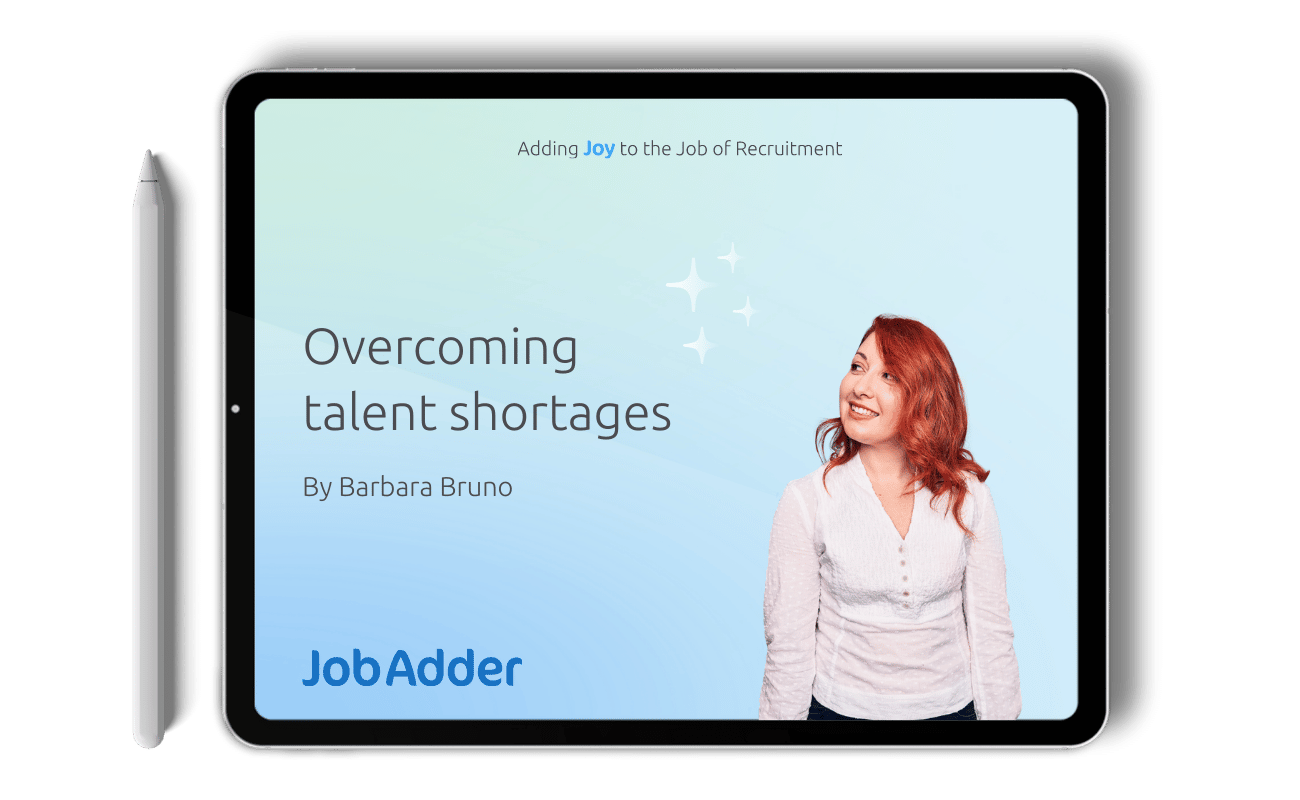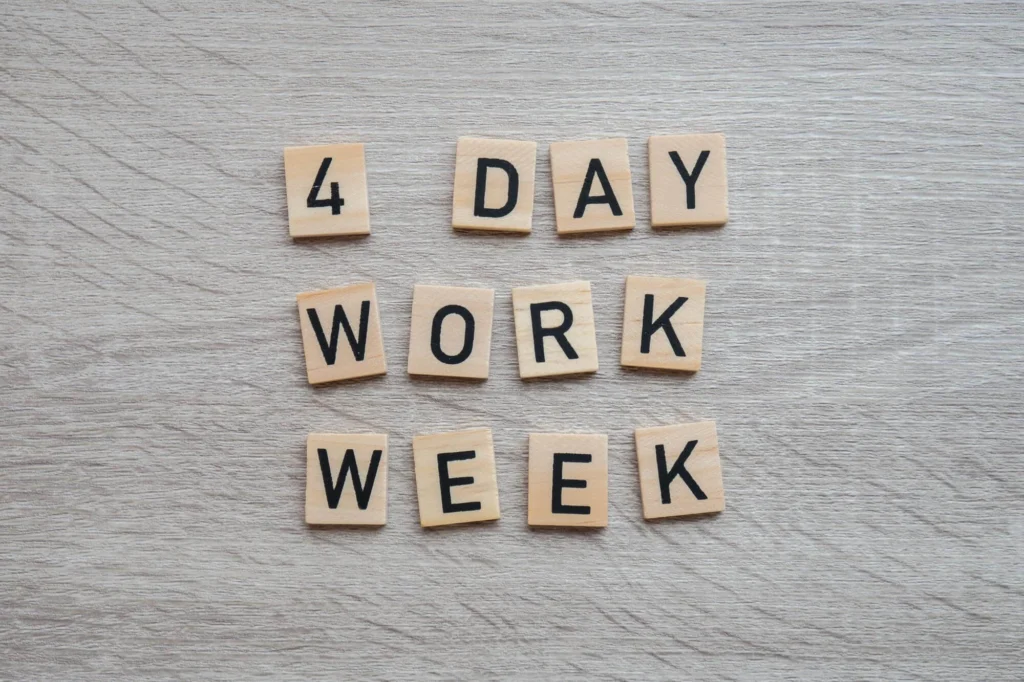Struggling to determine the best person for your open role from a pool of qualified applicants?
Hiring the ideal applicant for your position can be tricky at times. But, with the best hiring practices, you can easily narrow down your choices. Learn how to pick a candidate with the following essential steps.
FREE EBOOK DOWNLOAD: Overcoming talent shortages
Essential steps: Choosing the right candidate for the role
1. Know exactly what you’re looking for
Before you choose the right candidate for this role, you must understand what’s needed to fulfil this position.
Creating a job description and advertising right away may seem like the correct approach to finding the right job seekers, but there’s a strategic step before that.
You need to know what type of new hire this position is best for; this way the search is narrowed down. Consider the importance of:
- Education: What level of education does this role require? High school education, Bachelor’s degree, etc.
- Work experience: How many years of experience should an ideal candidate have in a related field? Do their previous jobs or internships make them the right fit? Think about what transferable experience could be relevant to this role.
- Skill sets: What are the required skills a candidate needs to fulfil this role? Explore what transferable skills could be relevant to this role.
- Aspirations: Do your candidate’s long-term goals align with yours?
- Personality traits: What personality traits best fit culturally with your team?
- Enthusiasm for the role: Is the level of excitement for this job what’s needed?
2. Build out your interview process
This next step focuses on how you prepare for the job interview process. Interviews are a critical measure when identifying the right candidate for your role. Come prepared with the best interview questions, tailored to what you want to learn.
In addition, standardising the interview process will make it replicable, ensuring your hiring team gets as much information as possible from each candidate. There should be a standard number of interviews within a specific time and a type of personnel or team member involved in each step.
We encourage a standardised interview, however, you can come up with questions on the fly. This allows you to learn more about individual candidates and what makes them unique. Ask questions about them specifically and what you learn from the interview as it progresses.
3. Involve multiple members of your team
The interviewing and decision-making process requires more than the hiring manager and recruiters to deal with a wave of applicants. This is why you should come prepared by involving multiple team members, ensuring you get the best results.
Multiple team members will provide a diverse array of perspectives to your interviewing process. Since they themselves have different skillsets and values, they may bring something to the table you might not have considered.
It would be great to include your organisation’s key stakeholders during this process. Allow these stakeholders to meet with the best candidates you have found for an interview. Their insights will assist you in making the final decision.
4. Test their skills
If you want the most skilled candidates to stand out from the bunch, a testing component in the application process will do the job. This test should focus on job-specific duties and the skills you are looking for.
If you want a candidate with outstanding problem-solving skills, create an on-the-spot assessment test focusing on that. To test their talent, create a mock-up of a sales pitch/web design/project plan or whatever else fits perfectly. You can also make up an actual exam that focuses on every skill this role requires.
It’s important to note that while you’re assessing candidates, they’re also assessing you and your company. Demanding unnecessary or long-winded assessments may sour candidates, so make sure there’s solid reasoning behind every request.
5. Think about culture
You can find a candidate that meets all the qualifications and has the necessary skills for the job, but they might not be a good cultural fit for the team.
Company culture fit can be just as important as the skills needed for the job. That’s why you should search for a candidate that will be the perfect addition to your team, not just someone who ticks all the boxes.
An interview is a perfect time to learn if someone is the right cultural fit. Be sure to add behavioural interview questions; they’ll come in handy to understand how a candidate would behave in future work situations. The following questions will help you know if a candidate is a perfect fit for the team:
- How do you manage conflict with team members?
- What would you do if you disagreed with a team member?
- Do you prefer to take the reins or play a more supportive role?
- Would you describe yourself as an introvert or an extrovert?
- How important is the work/life balance to you?
During interviews, you’ll be able to see if a candidate is the right fit, but you should also listen to the opinions of your team members for a different perspective. This is a team effort, and involving your team in this process is crucial when determining the best cultural fit. We also encourage you to have a more casual discussion with the candidate before and after the interview.
A casual discussion can help the interviewee get rid of nerves before the interview and establish a relationship with you after. A lunch interview or a casual fifteen-minute talk over the phone will help the candidate feel more accustomed to the new climate. This can also help you gain more insight into each candidate.
6. Contemplate their role in the company’s future
The last step in choosing the best candidate for your job is determining if they have a future role in the company. Does this candidate have the ability to evolve and gain more responsibility within the organisation? This is what differentiates good candidates from great candidates.
Ask them about their expectations for the role and what they hope to get out of it. This will help you learn if they could be a long-term employee.
An employee that stays for a couple of months and then leaves will decrease productivity until you can find a suitable replacement. Then, you have to deal with all the recruiting, onboarding and training expenses. There’s clear value (and costs) associated with choosing the right candidate the first time, so make sure you pick someone who’s likely to stick around.
Critical qualities for great candidates in any role
When looking for great candidates for your open role, they should have these critical qualities:
- Self-motivation: A person that can motivate themselves and be proactive.
- Teamwork skills: If a candidate is all about teamwork and collaboration that means the culture of your company will be at its best. This critical quality guarantees that all hands are on deck, producing the highest quality work.
- Natural curiosity: A candidate with this skill has a desire to learn. They can attain information well and consistently improve over time based on their curiosity.
- Lifelong learning: A lifelong learner combines self-motivation and a natural curiosity. They’re willing to learn and better themselves because there’s always room for improvement.
- Passionate about the work: Someone interested in and excited about the work they do.
Source, attract and engage your best candidates with JobAdder
The hiring process doesn’t need to be a monotonous activity.
JobAdder’s AI and skill matching automation ensures that you can quickly identify the best candidates in your existing talent pool.
This proactive sourcing strategy allows you to uncover qualified candidates, even before you’ve posted a job ad! Reach out to our friendly team to learn more about how JobAdder can streamline your recruitment processes.
Want to find quality candidates in a tight talent market? Barbara Bruno reveals her expert tips.





